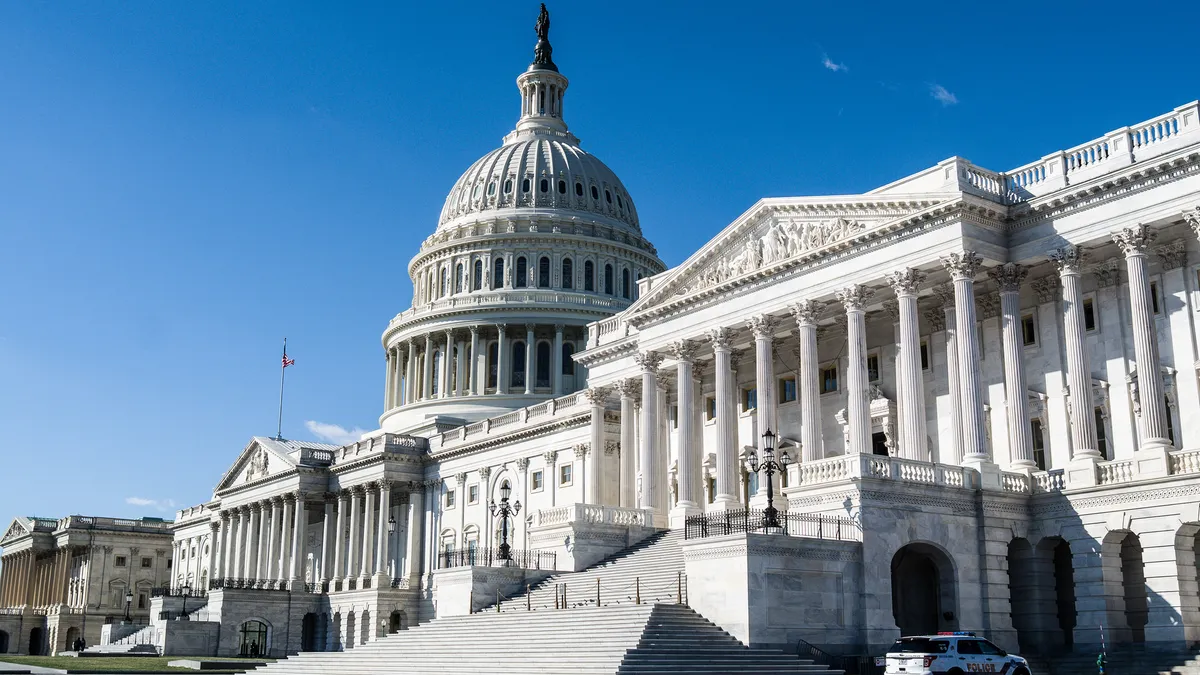Dive Brief:
- Three U.S. senators yesterday introduced a bill to establish a nationwide energy efficiency standard that would call for retail electric and gas utilities to achieve energy savings of 22% and 14% respectively by 2035.
- The lawmakers say more than half of states currently have such standards in place, and they have proven to be cost-effective ways for customers to reduce consumption.
- A wide range of efficiency advocates have announced support for the bill. A national energy efficiency resource standard (EERS) could generate $150 billion net savings for families and businesses, resulting in 400,000 added jobs in 2030, according to the American Council for an Energy-Efficient Economy.
Dive Insight:
State EERS programs, on average, cost utilities less than $0.03/kWh saved, according to ACEEE, which is less than the average cost of new electricity supply. The group's research also concluded that for most states, the benefits of these programs were about two to three times the cost.
The proposed legislation "leaves decision making to utilities and program administrators, and refrains from specifying investments, resources, or efficiency measures," the group said in a letter advocating for the measure.
Under the proposal, retail electric and natural gas utilities would need to achieve energy certain savings by the year 2035. Distributors would be allowed to obtain energy savings in a variety of ways, according to a summary of the bill, including helping customers install insulation and upgrade lighting and appliances.
The bill would direct the U.S. Department of Energy to issue a rulemaking to "work out the details of this national EERS, which would include setting uniform national energy savings measurement protocols for retailers to use to measure, verify, and report energy savings achieved," according to the summary.
States would also be allowed to continue to administer their own programs or adopt even more stringent efficiency goals.
The measure was proposed by U.S. Sens. Tina Smith, D-Minn., Angus King, I-Maine, and Jeff Merkley, D-Ore.
Oregon has already directed its electric and gas utilities to help customers reduce demand.
"These moves have proven to be a big win for American families, who are wasting less energy and saving money on their utility bills," Merkley said in a statement. "It’s time for Congress to introduce a national efficiency standard, so communities across the country can experience those benefits."
The legislation was endorsed by a range of groups, including the Natural Resources Defense Council; Union of Concerned Scientists; the Alliance for Industrial Efficiency, Sheet Metal and Air Conditioning Contractors National Association; Sierra Club; Building Performance Association; and Conservation Law Foundation, among others.
Other efficiency-focused legislation is pending as well.
Last week, a bipartisan group of lawmakers introduced a bill to strengthen national model building codes to make new homes and commercial buildings more energy efficient.
The Energy Savings and Industrial Competitiveness Act is sponsored by Sens. Jeanne Shaheen, D-N.H., and Rob Portman, R-Ohio, along with several other lawmakers. In addition to strengthening model building codes the law would direct DOE to work with private sector partners to encourage research, development and commercialization of new technology and processes for industrial applications.















